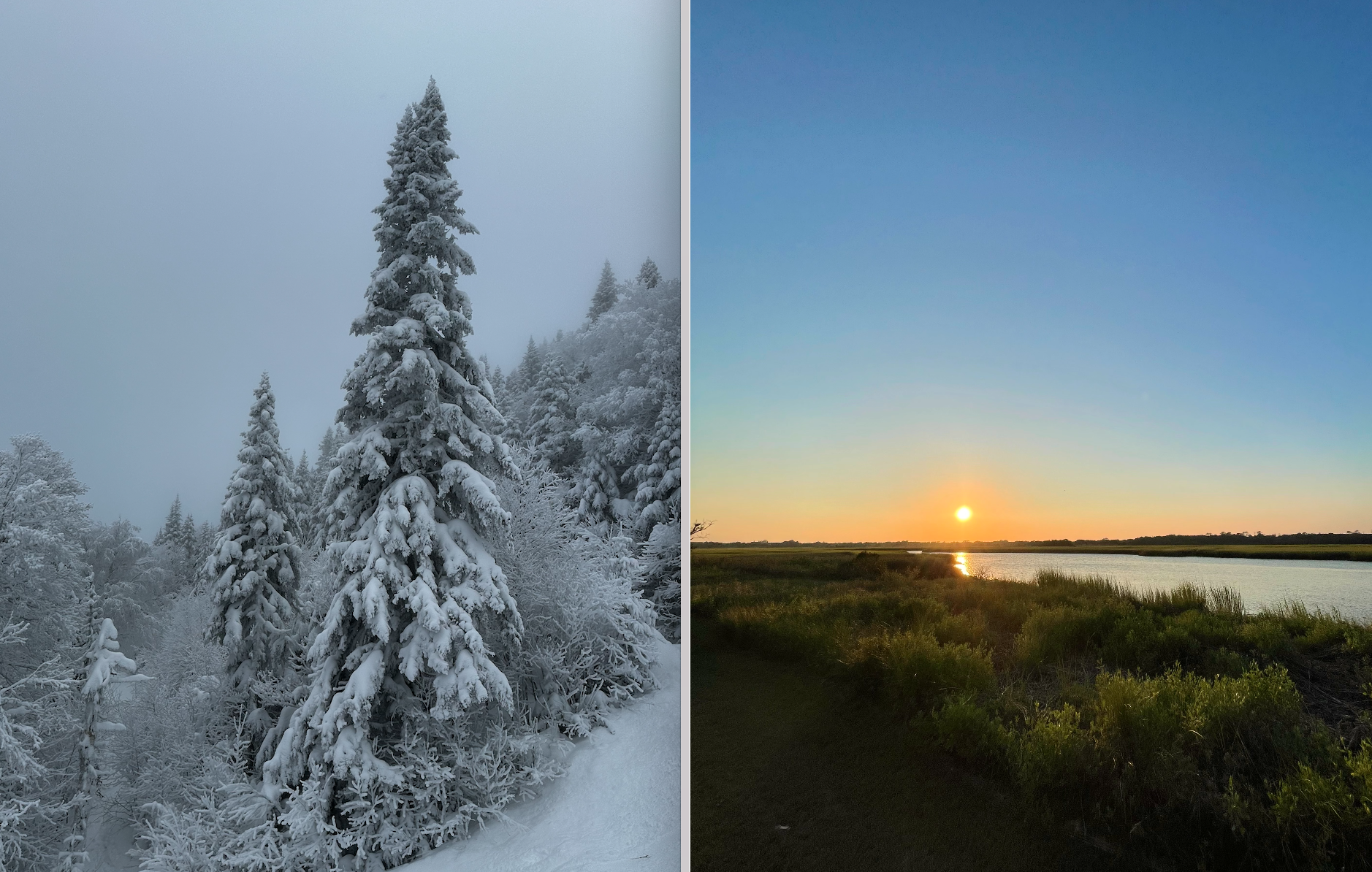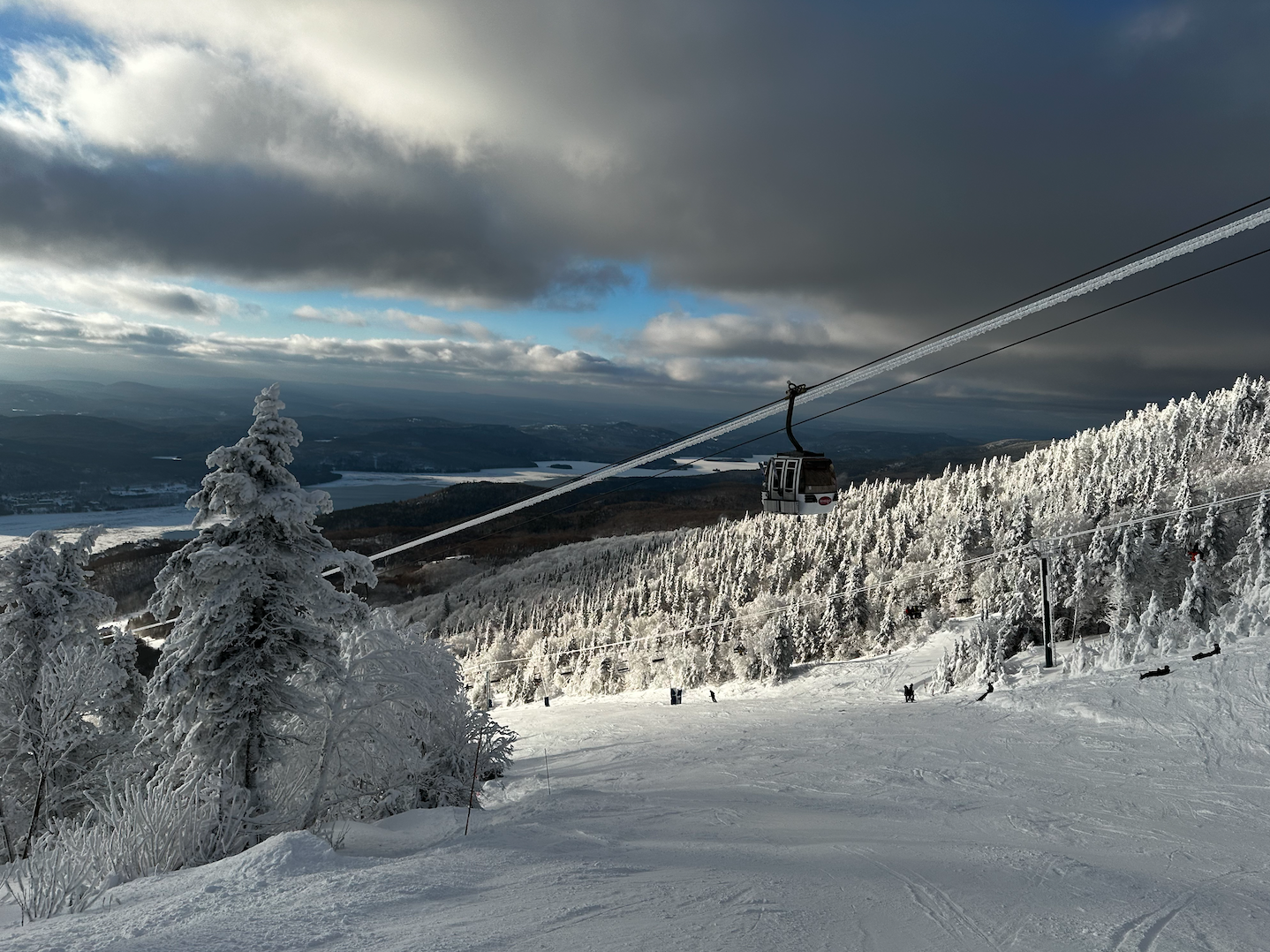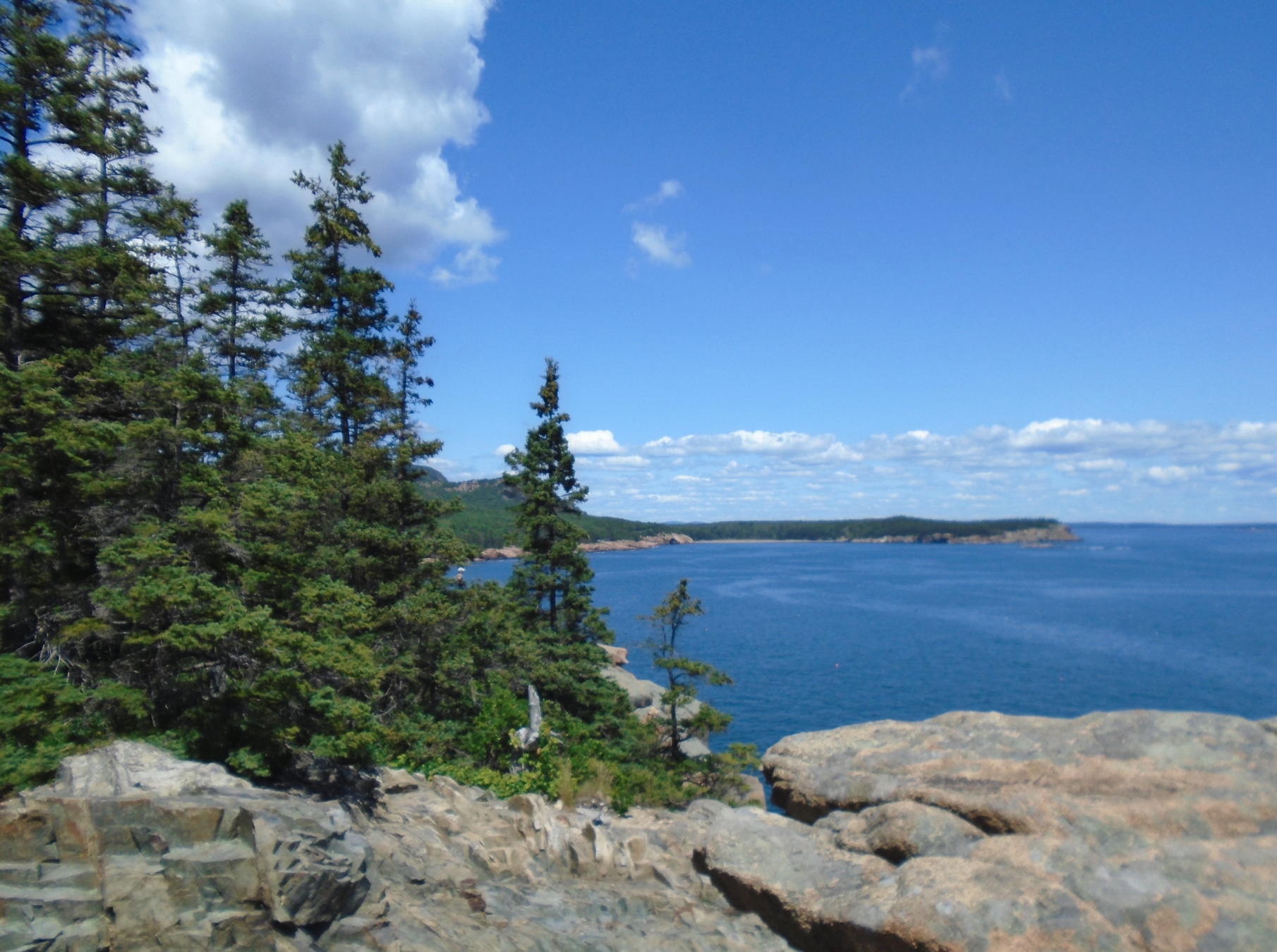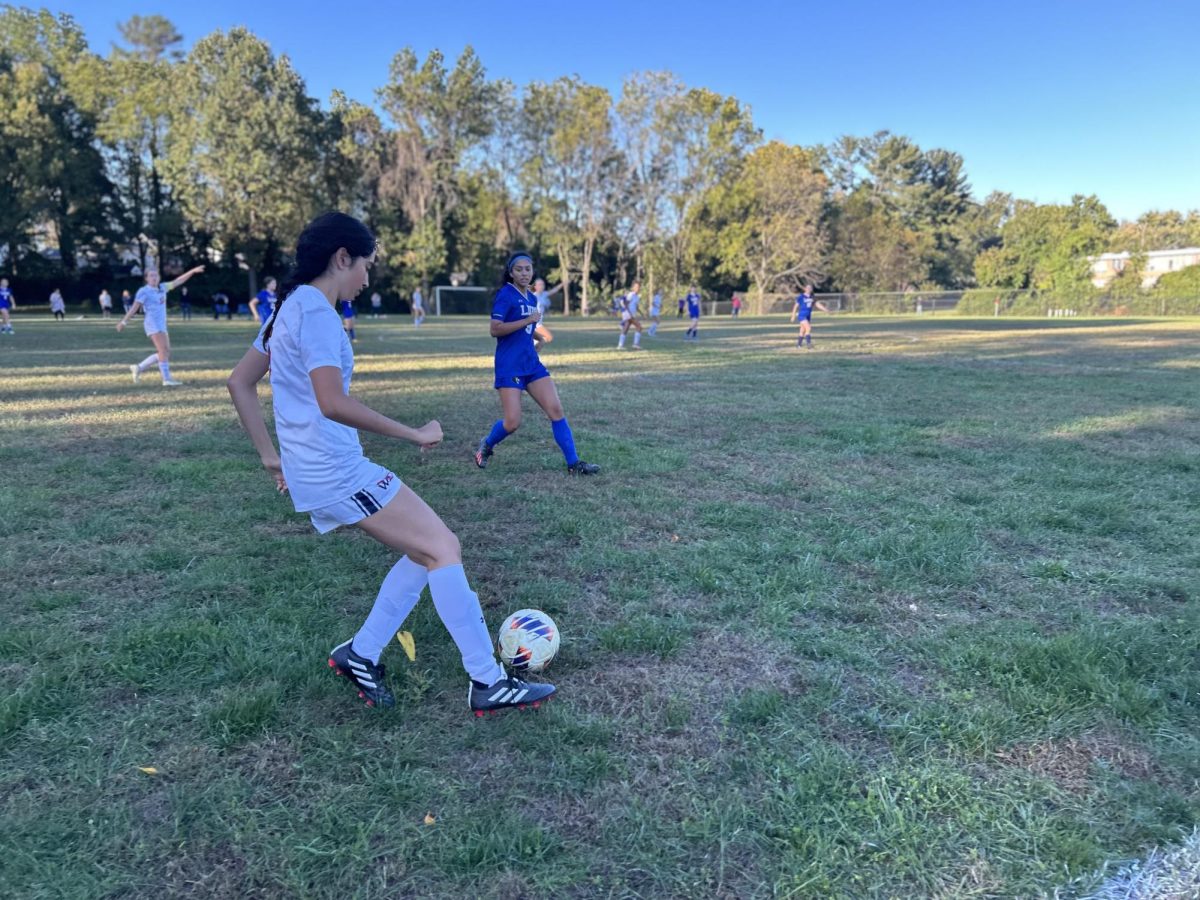Summer vs. winter


It’s a cold January morning, I wake up to delightful news: school is canceled due to heavy snowfall; it’s officially a snow day. With a steaming mug of hot chocolate, topped with whipped cream of course, I step outside into a winter wonderland, ready to embrace the magic of the season.
As the summer months approach, many people are left reminiscing about the comfort of the winter months. Amidst this longing for cooler temperatures and snug blankets, a timeless debate resurfaces: which season truly is better, summer or winter? While some prefer the discomfort of summer’s sweltering days, winter easily beats out summer for the best season.
It’s no surprise that summer brings its share of discomforts, but what is even worse is that there is no solution to any of the problems summer brings. The scorching summer heat leaves people with no choice but to stay inside in the AC, while the winter cold merely requires extra layers to someone’s outfit. The relentless summer humidity puts everybody in a constant sweat that no amount of deodorant can combat.
The winter cold itself provides an area for fashion expression, which turns layering into an artform. Anyone can stay comfortable in the extremes of winter cold; and do it with style. Elegant jackets become not only fashionable but practical, with scarfs and gloves becoming more than just handy accessories but adding personality to any outfit.
While the summer brings problems, winter brings relaxation. In the wintertime, there is something incredibly soothing about cozying up next to a crackling fire while reading a book. The chill in the air outside makes the warm air inside feel even better. The gentle heat of the indoors creates a special atmosphere that feels comforting.
But it isn’t only the indoors that makes winter so appealing, the outdoors itself is beautiful. Snowfall turns the world into a magical wonderland, decorating mundane streets and creating an oasis that turns everyone into a child again. According to the Montreal Science Center, snow traps sound waves, bringing quiet to wherever it falls. This sense of peace is necessary in an always-busy world and allows people to take a break from their daily routines and enjoy nature.
In contrast, the insects’ summer brings are constantly biting, leaving people constantly scratching themselves and unable to enjoy the outdoors. The only possible solution is bug spray–which, according to the NIH, can be poisonous and doesn’t work very well.
Not only is it the tranquility that makes snow so great, it’s the multitude of activities that come with it. Whether building a snowman, sledding down a hill, or snowboarding off of a jump, snow brings adventure to everyone. There is no adrenaline rush quite like the one that comes when skiing down a hill that’s probably a bit too steep and meant for someone a bit more experienced. For those who can’t ski, try snowtubing; the snow creates memories for everyone.
Furthermore, these activities have positive physical and mental effects on the body. According to an NIH study on downhill skiing, skiing offers a variety of physical and mental benefits, including: improved cardiovascular fitness, musculoskeletal benefits, stress reduction and positive environmental adaptations.
While it is true that summer has its fair share of fun activities, they are unable to be enjoyed by around 25% of American adults who, according to a study done by the CDC, have seasonal allergies. In contrast to the sneezing, itchy eyes and stuffiness which can bother people all summer long, winter becomes a season of relief, providing comfort for all.
With its comforting atmosphere that brings calmness to all, fun activities that give a pump of adrenaline and beautiful scenery that no-one can look away from, each aspect adds a layer of appeal to the season. So, as the days get longer and temperature’s rise, it is important to remember that winter really is the best.

On the last day of school, as the clock inches closer to 3:45 p.m., my classmates and I are barely able to contain our excitement. We countdown the seconds until freedom, slowly but surely. When the final bell of the school year rings, we cheer in the hallways, racing to leave as summer begins.
As the days grow long and the temperature rises, a seasonal debate resurfaces: summer versus winter. Although some may enjoy the coziness of winter, we must make the truth clear—summer has always been no. 1.
The summer offers a wide range of benefits. Not only does it usher in a break from school, but the weather improves mental and physical health. According to a University of Michigan study in Science Daily, the increased sun exposure surges our vitamin D levels, which improves our moods and produces more melatonin, improving our overall health. Additionally, the warm weather leads to more time spent outside, a higher likelihood of exercise and socializing, according to the New York Post.
On the flip side, winter has a negative effect on mental health. According to the Mayo Clinic, reduced sunlight causes a drop in serotonin that may trigger winter-onset Seasonal Affective Disorder, as well as a number of other mental disorders like anxiety disorders, depression and hypermania for bipolar disorder.
The reduced sunlight and colder temperatures of the winter can even cause an increase in symptoms of mental illness. For example, because most tend to struggle from a decrease in energy and motivation, symptoms of anxiety, such as irritability, difficulty concentrating and feelings of overwhelm, increase.
When comparing the freedom that summer allows to the freedom that winter allows, the winter pales in comparison. The variety that the summer adds to our day-to-day routines is liberating. Who wants to be at school and work with no end, strapped to their desk with no freedom to pursue hobbies or to even relax? The summer provides us a time to do so, and more so, to heal from the stress of the winter. We would simply burn out without summer.
The break from school and work—for some—makes time for other activities of their choosing, such as day or overnight summer camp, programs, internships or vacations. The range of activities that can be chosen from is also greater because the weather is not as much of an obstacle to outdoor activities as winter often is.
Better heart health, boosted brain power, reduced stress and improved sleep are all benefits of taking a vacation during the summer, according to studies by the National Library of Medicine (NLM) and the American Psychological Association.
Hobbies are not the only things that can be pursued during the summer. Travel can also be pursued so that we can explore parts of the world other than our homes, which allows us to educate ourselves, and expose ourselves to new cultures and experiences that are otherwise outside of our comfort zones.
Additionally, the experiences that can be taken advantage of during the summer, none of which are available during the winter, improve children’s development. In an NLM study from 2019, four domains of development are explored: “Safety, risk-taking, and anti and pro-social behavior,” “health-promoting behaviors,” “social and emotional development” and “academic learning and opportunities for enrichment.” It was found that summer programs and camps are able to meet and support developmental needs, whether physically, neurologically, cognitively, socially or emotionally.
The opportunities that the summer holds are endless. What is most important, however, is that we have the choice to choose how to spend it, and how to make the most of it each year. So as the school year draws to a close, embrace that choice, and don’t waste it, because once winter rolls around again, you’ll regret it.


















